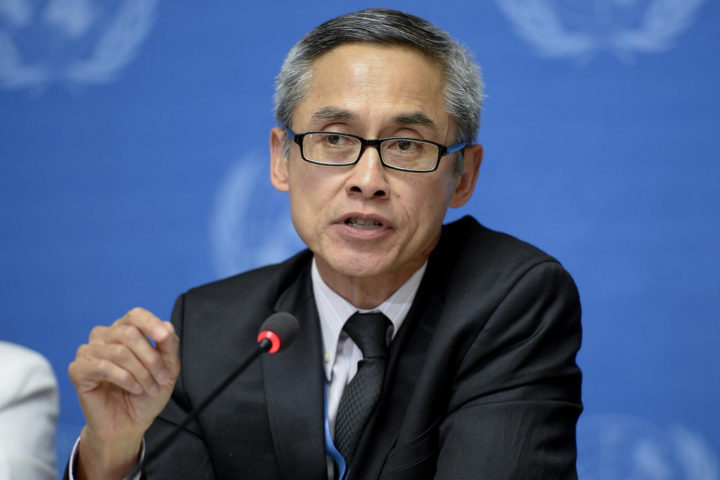A close vote on November 21, 2016, by a United Nations General Assembly committee affirming that the newly appointed UN expert to address violence and discrimination based on sexual orientation and gender identity should continue his work is a victory for human rights, Human Rights Watch said today.
Human Rights Watch joined 850 nongovernmental organizations from 156 countries around the world in calling on the General Assembly’s Third Committee, which includes all member countries, to take a principled stand that lesbian, gay, bisexual, and transgender (LGBT) rights are human rights. The vote rejected language advanced by African countries that sought to stop the expert from working until the UN could debate the “legal basis” of the mandate, which was created by the Human Rights Council in Geneva.
The Third Committee’s vote affirms that the right to be protected from violence and discrimination applies equally to LGBT people,” said Boris Dittrich, LGBT rights advocacy director at Human Rights Watch. “It also respects the integrity of the Human Rights Council, as the UN’s top human rights body, to ensure that mechanisms are in place to protect rights not just in theory, but in practice.”
The UN Human Rights Council created the position of Independent Expert on sexual orientation and gender identity in June to assess implementation of existing international human rights law, identify best practices and gaps, raise awareness of violence and discrimination based on sexual orientation and gender identity, and engage in dialogue and consultation with countries and other stakeholders. The position will also facilitate provision of advisory services, technical assistance, capacity-building, and cooperation to help address violence and discrimination on these grounds.
The Human Rights Council appointed Vitit Muntarbhorn, an international law professor from Thailand, in September, and his office has been operating since earlier in November. “We look forward to working with Professor Vitit Muntarbhorn to address these important human rights concerns,” Dittrich said.










